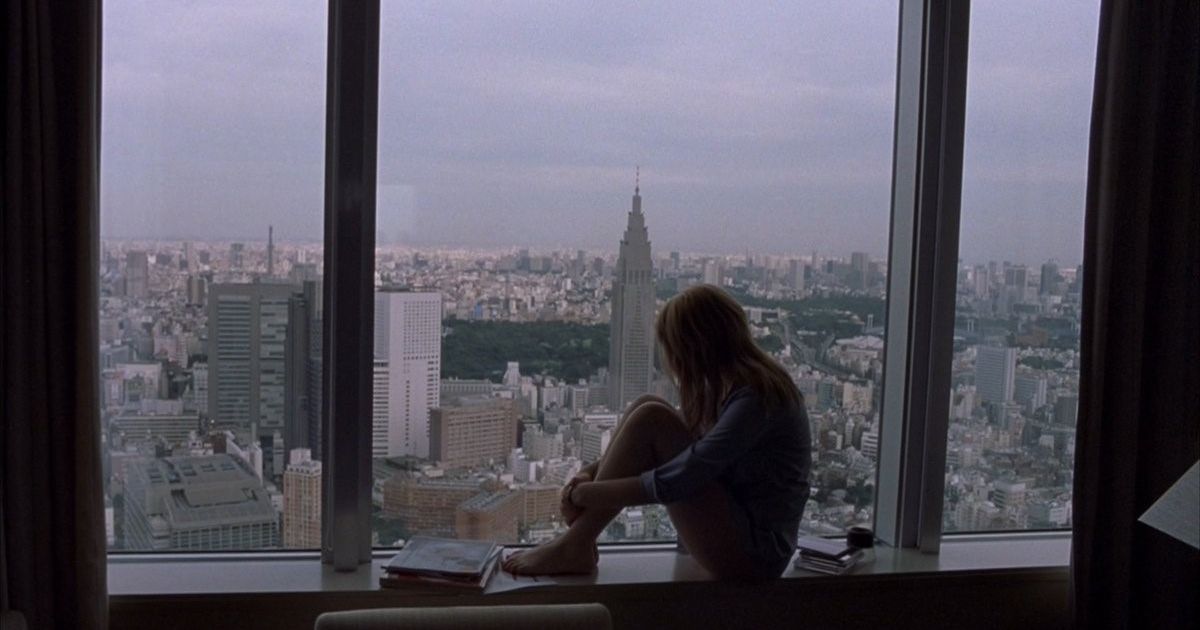Summary
- Wim Wenders’ Perfect Days is a beautifully complicated film that explores the joy and beauty of simplicity.
- Koji Yakusho delivers a masterful performance as the main character, Hirayama, who finds happiness in the simplest of things.
- The film uses creative visual decisions and a carefully curated selection of classic rock songs to emphasize the theme of finding beauty in the mundane.
Whether it’s raining or the sky is full of cloudless sunshine, the main character in legendary filmmaker Wim Wenders’ Perfect Days is consistently happy. A public toilet cleaner by the name of Hirayama (Kōji Yakusho) seemingly finds joy in what could easily be described as the simplest of things: picking up discounted novellas at the local bookstore, partaking in his hobby of shooting trees with his old Olympus camera, and adopting little saplings he finds on the ground when he goes on his lunch break. Oh, and he also has a collection of classic rock cassette tapes (Patti Smith, Lou Reed) that he holds more dear than money itself.
But as the movie progresses, we see this collection take a backseat as Hirayama’s niece, Niko (brought to life by Arisa Nakano), suddenly pops into his life one night after not making an appearance for years. Sure, there is his flaky apprentice named Takashi (who is played by Tokio Emoto), who gives him some human interaction during work hours, as well as shop owner Mama and her small but intimate hostess bar where he seems to partake in some casual conversation, but this is different.
A new spark seems to enter his eyes when he realizes that Niko takes a genuine interest in what he reads and listens to. He is surprised when she wants to actually help him clean bathrooms. She looks up at trees with him and, together, these tall and majestic pieces of nature waft over both of them, cementing their bond. She even has the same disposable camera with her that he gave her years ago when she was younger. But as we all know, the good times don’t last forever, and this is where Perfect Days becomes a surprisingly hefty and emotional undertaking.
Repeating the Same Day and Enjoying It
Perfect Days
- Release Date
- February 7, 2024
- Cast
- Kôji Yakusho , Tokio Emoto , Arisa Nakano , Aoi Yamada
- Runtime
- 2hr 3min
- Studio
- Master Mind, Wenders Images
- Koji Yakusho is stunning as a public toilet cleaner in Perfect Days.
- Wim Wenders’ character study is both achingly beautiful and warmly sad.
- The choice of music and creative visual decisions create a truly memorable experience.
- Perfect Days will help you enjoy the beauty of simple things again.
Intimately set within the side streets, private corridors, and small indoor settings of Tokyo (yet using wide shots and long takes on the road to convey the main character’s lonely life journey), this theme of enclosed space helps to funnel viewers directly into actor Kōji Yakusho’s ability as an actor, who plays Hirayama as a somewhat silent protagonist. The first time we really get to see this combination in action is when he and Takashi stop at a hidden music store because the younger Takashi is desperately trying to make some money in order to impress a girl.
With numerous people around them witnessing this scene, Yakusho portrays Hirayama as a proud and powerful man who, with just a stern but respectful motion of his arm, stops the relentless child of a man from selling his own beloved tapes. This tightly angled scene (with its low ceiling and close walls) not only captures the softer side of Hirayama as he ends up giving Takashi money, but also shows the audience firsthand how much he values these archaic musical recordings.

Best Movies Set in Tokyo, Ranked
Tokyo is a bustling metropolis that serves the backdrop of some beautiful films. Here are the best movies set in Japan’s capital city, ranked.
Repetition is a big part of Perfect Days. Shown even more so than needed to get the point across, we wake up and go to sleep by Hirayama’s timing. The audience follows along as he uses a small angled mirror to check the underside of toilet seats for any signs of abuse or foul mess. The great Wim Wenders’ choice to show this character’s subtly jubilant reactions to even the most minute of situations, such as children innocently scaring him or a homeless man embracing a tree, make the day to day monotony of Hirayama’s job endearing enough, if not pleasant.
Hirayama Is Happy (Is He?)
For a drama that boasts a main character who speaks so little, the audio and visual details have to pick up a lot of the slack in terms of showing us his personality (except for some very weighted and blunt moments in the latter half of the movie). You would assume the pre-picked music tracks would bolster the truth about the main character’s needs and wants, but instead, the American rock samplings take a surprising direction (except for Lou Reed’s titular “Perfect Day,” perfect as always, but somehow lonelier here).
One may complain that Van Morrison’s “Brown Eyed Girl” and Nina Simone’s “Feeling Good” come through lazily and heavy-handed in a movie that is so precise and soft. However, there’s meaning to these obvious suggestions; after all, Wenders is responsible for creating some of the greatest film soundtracks and scores of all time in movies like Until the End of the World, Wings of Desire, Paris, Texas, and The Million Dollar Hotel. He knows his music. Perhaps by depicting the actual enjoyment (cross-culturally and inter-generationally) of some classic rock songs, Wenders is again reiterating the theme of finding beauty and joy in the mundane. We have heard these songs countless times before, but watching Hirayama enjoy them and care about them lets us experience them anew.
There are also creative visual decisions made within the movie that add layers to Hirayama’s life outside his professional responsibilities. Simple fade transitions that could have symbolized the end of Hirayama’s day are replaced with eerie black and white dream-like sequences. Familiar tree branches that the audience saw during his lunch break are now mixed with very abstract faces and structures that tease a troubled past. With different iterations of this sequence shown throughout Perfect Days, Hirayama’s peace is seemingly chaotic when he sleeps. How joyful really is this man, and what kind of joy is it?

15 Classic Slice of Life Dramas That Are Worth Revisiting
It’s time to discover slice-of-life films’ charm and easygoing nature. Many of these classics are worth revisiting if you enjoy light dramas.
As much as Niko brings a much-needed cushion to the toilet cleaner’s simple and isolated life, Niko’s mother brings a visually stark counterbalance when she arrives to pick her up. Everything about her, from her dress to her car is black, sleek and full of wealth. She even has a driver who loyally waits in the car, still as a painting. Albeit unsubtle, this blunt comparison brings a sense of realism to Hirayama’s poor life that was never framed correctly up until now. This hits hard for both the audience and our main character.
Kōji Yakusho Gives a Masterful Performance
Yakusho and Emoto bring a quiet, sometimes even playful beauty to their performances, and Nakano, however elusive, brings a generational vitality to the role. It’s Yakusho, though, who ultimately creates a seismic emotional shift. He is perhaps Japan’s greatest actor today; a cursory glance at his filmography displays some of the best Japanese films of the past 30 years — Cure, Charisma, The Ell, Tampopo, Shall We Dance, Eureka, Warm Water Under a Red Bridge, Memoirs of a Geisha, Tokyo Sonata, Hara-Kiri: Death of a Samurai, and more.
He is poignant, inspiring, and heartbreaking all at once as Hirayama. Alone and with nothing but clear highways all around him, a war between smiles and tears erupts on his face in his strongest and most impactful scene. The character is an enigma in many ways; we have to piece together his past and present, just as much as we have to construe his emotional headspace. It’s a beautifully complicated role and one of the greatest performances of 2023 (one which brought Yakusho the Best Actor award at Cannes).
Perfect Days is a slow and simple tale of joy, the mystery of the human spirit, and the beauty of simplicity, even if it’s anything but simple. The film will be released in North American theaters from NEON beginning Feb. 7th, 2024. You can find showtimes and get tickets here.




